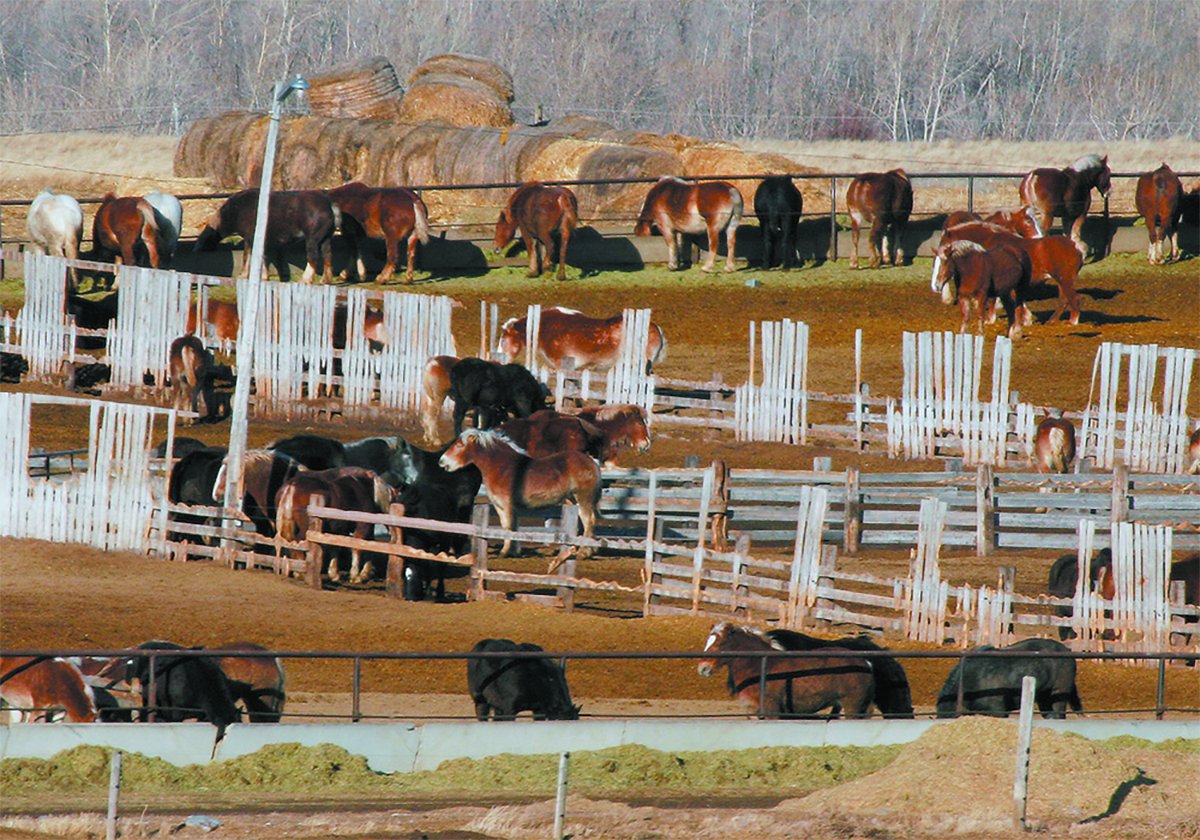The threat of the United States legislating country-of-origin labelling hovers like a thundercloud over the export-dependent Canadian beef industry.
The proposition has captured the attention of U.S. lawmakers. It has been attached to the American farm bill now before the Senate and that must undergo a joint review by the Senate and House of Representatives.
The concept was spearheaded by northern tier states and the Ranchers-Cattlemen Action Legal Fund United Stockgrowers of America.
“If passed, only cattle born and raised in the U.S. would be considered U.S. beef. This would have a serious effect on marketing to the U.S. of beef and live cattle,” Canadian Cattlemen’s Association president John Morrison told the annual meeting of the Alberta Cattle Commission.
Read Also

Canada’s slaughter horse industry lacks transparency
The lack of clear reporting and public access to data keeps the industry largely hidden, leaving questions about humane treatment and traceability unanswered.
However, Canada does have supporters in the U.S. who oppose country of origin labelling, he said.
Morrison has talked to Lynn Cornwall, president of the U.S. National Cattlemen’s Beef Association, seeking a way out of the dispute.
“I explained to him if the cattle and beef weren’t going to move south, they sure as hell weren’t going to come north either,” said Morrison.
Canadian representatives are meeting in February with NCBA executives at their annual convention in Denver, Colorado, to discuss this latest trade dispute.
Large states like Texas are opposed to it because they import considerable numbers of cattle from Mexico for finishing and slaughter. Large packers and meat distributors also oppose the change in policy.
“There are two packing plants in the U.S. that have suggested that without the Canadian supply, they are no longer viable,” Morrison said in an interview.
For beef finishers in British Columbia, plants in Idaho and Washington are important because no large processors are left in the province.
Country-of-origin labelling has been a threat for a number of years. The regulation would include fruit and vegetables, whole muscle and ground product derived from beef, pork and lamb.
U.S. processors and retailers are reluctant to segregate foreign product because of the added work and cost in sorting and labelling. They might stop buying Canadian beef if this legislation passes.
Canadians argue it violates the spirit of free trade agreements where the beef industry moves freely from Mexico to Canada.
“We believe as far as the beef industry is concerned, the border should be nothing more than a pencil line on the map,” Morrison said.
Actual losses to the Canadian industry are hard to determine, said Glenn Brand of the Beef Information Centre.
Canada exports more than half of its beef production with about 75 percent of that sold to U.S. retail and restaurant distributors.
“A vast majority of what we were exporting is trimmings,” said Brand.
Trimmings quickly lose their identity as meat handlers often blend them with other products to make burgers for the restaurant business.
Canada supplies about three percent of the total U.S. beef supply. For the small amount used, retailers would likely opt to go totally American rather than go through the extra cost and inconvenience of separating the products, said Brand.
Canada could continue to sell beef to the U.S. but at a discount price.
The American group R-Calf argues consumers have the right to know where their food comes from and may choose accordingly. The organization said the U.S. country-of-origin label should only be used on meat from an animal that was born, raised and slaughtered in the U.S.
R-Calf argues that nearly 20 percent of beef consumed by Americans came from imported product. Some of this imported beef carries a USDA quality grade stamp, leading consumers to believe it is domestic meat.

















